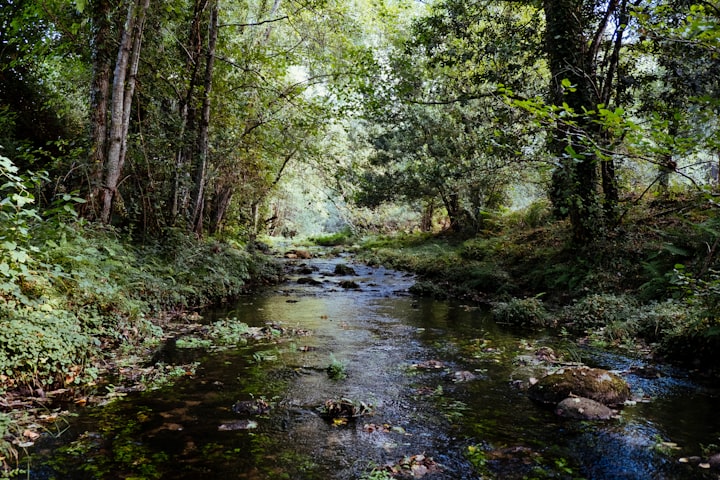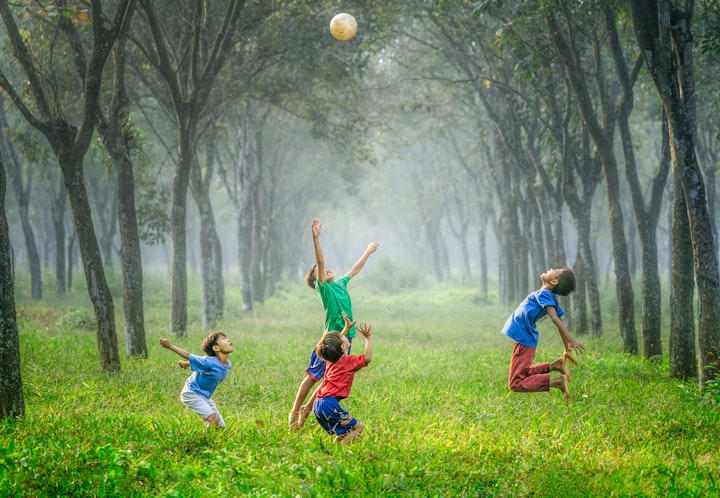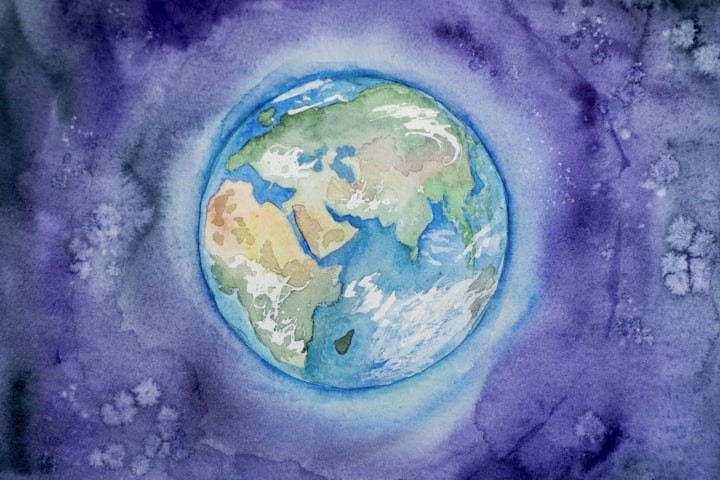Depriving Our Children
How we are depriving our children of nature

I took my nieces on a camping trip to Oak Creek Canyon in Sedona, Arizona last weekend. They rarely have the opportunity to get out of the city and I want to expose them to nature as much as possible in the hope that they will grow to appreciate the natural world.
Just as I expected, they had no problem adjusting to play in nature versus the built playground. They immediately took off their shoes and dug their feet deep into the sand of Oak Creek. I kept insisting that they keep their shoes on, but the urge to feel the earth beneath their feet was too great to listen to their supposedly wise old aunt. Instead, they ran around the creek in bare feet and I gave up trying to force them to wear shoes.
When my mother saw the video I posted of them in bare feet in the middle of the woods, she scolded me for allowing them to run around with their shoes off, then sharing it on Facebook so everyone could see.
But I’m not sorry. Given the opportunity to commune with nature in this way seems only natural to want to feel the earth beneath our bare skin. After all, John Muir ran barefoot through the woods, too. Maybe we would all be a bit better off if we all did it once in awhile instead of spending all our time standing on concrete.

According to Richard Louv, in Last Child in the Woods: Saving our Children from Nature-Deficit Disorder, children do not play outdoors as much as they did in previous generations. Today, children stay inside playing video games and watching T.V. more often than they play outside, and when they do play outside, it is often in a man-made playground, rather than a natural area.
Gone are the days when children spent hours exploring the creek behind their neighborhood catching tadpoles and climbing trees. The modern childhood tends to be more experienced with the X-box than skipping rocks.
Part of the reason for this is due to safety. Parents rarely let their children play unsupervised outside anymore. Instead, they schedule their children’s outside time with structured activities like soccer practice and little league.
These activities keep children out of trouble, but they lack the experimentation that unstructured play in natural surroundings can provide for children. Louv cites several studies that demonstrate natural play areas enhance children’s creativity more than a man-made playground.
Another reason children do not play in natural areas anymore is simply that natural areas are getting harder to find as we pave over meadows and clear forests to build parking lots or new roads.
We are raising a generation of children who have less experience in nature than we have had. You may think this is obvious. You may think it is not that big of a deal, but it could have long term consequences.
Louv argues that if we are not careful, we will lose the nature preservationists in our society as fewer and fewer children experience the wonders of nature. Who will be the natural scientists of the future? Who will go out into the back country of our National Parks and research the plants and wildlife? If we don’t teach children to appreciate nature in childhood, how will they preserve it as adults?

Who is to blame for this loss of natural values? Well, in a word, we are: the generations who came before. Through our grossly wasteful modern lifestyle in wealthy developed countries we treat nature as if it exists simply for our own use and exploitation.
Those of us who grew up playing in nature suddenly turned away from it for the convenience of our SUV’s and single use plastics without realizing how we would impact future generations. Now we wonder why Johnny would rather play video games than go outside.
It is our own damn fault and you must wonder, do our children know what they are missing? Do they know the childhood we are depriving them of?
For the answer, I direct you to Greta Thunberg, Swedish climate change activist and her army of young school strikers. In 2018, Greta started a school strike for climate change by standing in front of the Swedish Parliament to urge politicians to take immediate action before it is too late.
She argues that we have talked about the problem for thirty years, but nothing has been done. Now, is the time for action.
Her generation will see a direct impact from our wasteful lifestyle and, she asks, why should they attend school, studying for a future that does not exist? Clearly, she knows what she is being deprived of.

And she makes a good argument. Humans cause the extinction of two hundred species per day. How is it that we assume, we will never be one of those species?
The earth has been here 4.5 billion years, while humans have only existed a fraction of that time, just 200,000 years, to be exact. The dinosaurs went extinct before we roamed the earth, why do we think our fate will be somehow different?
Species have gone extinct long before we came on the scene, but we may be the only species that directly causes its own extinction with complete knowledge of what we are doing.
The planet does not need us. It was here long before we were, and it will be here long after life on earth is destroyed. We, however, desperately need it.
In fact, it is all we really have. Everything we have comes from the earth. All our clothes, buildings, cars, even the money, which we are so consumed with, is made from trees. If we do not have a planet, we do not have anything. The earth is all we have. No, let me rephrase that, the earth has us. We are completely dependent on it. It’s best not to bite the hand that feeds us.

Maybe, someday, my nieces will want to take their children to play in Oak Creek just as they did when they were children, but that won’t happen if we don’t ensure the survival of Oak Creek and other places like it.
In my lifetime, the ecosystem of the creek has changed drastically. As a child, I knew a much wider creek, full of gushing water, while today, only a thin ribbon of water trickles over rocks leaving a mostly dry creek bed along the sides; evidence of the abundance that once existed but does not anymore.
If we do not do something to prevent the warming of the earth, I fear my beloved creek will run dry and future generations of children will never know the marvel of playing on its banks.
Worse yet, our cities will run out of water forcing population centers, here, in the Western United States to migrate to places with enough water to support life.
If I want my nieces to experience nature the way I did when I was a child, I need to make sure natural places continue to exist on this planet. That will not happen if we continue to do nothing.
We know the technology exists to provide clean energy to our homes and businesses through sources such as, wind and solar.
We know the technology exists to power our vehicles with clean sources, such as electric and hydrogen fuel cells, eliminating fossil fuel emissions all together, but those in power refuse to transform their profitable industries into a more sustainable market because they don’t think they can afford it, when what we really can’t afford are the lives lost in disasters resulting from climate change like that of Hurricane Dorian.
It is time to hold the big corporations causing mass pollution accountable and force them to find solutions that are sustainable for life on this planet. It is time that our governments and businesses invest in the mass production of clean energy. We have been complacent for far too long.
How can we deprive our children of the spectacular wonders of the world we know and love? It is time to change our lifestyle so our children can have the opportunity to experience this miraculous existence of life on earth that we have, so shamelessly, taken for granted.

About the Creator
Terri Kalloch
I love writing, walking in the woods, smelling the pine trees and playing with my two rambunctious dogs. You can find me on Facebook, Twitter and Instagram.






Comments
There are no comments for this story
Be the first to respond and start the conversation.